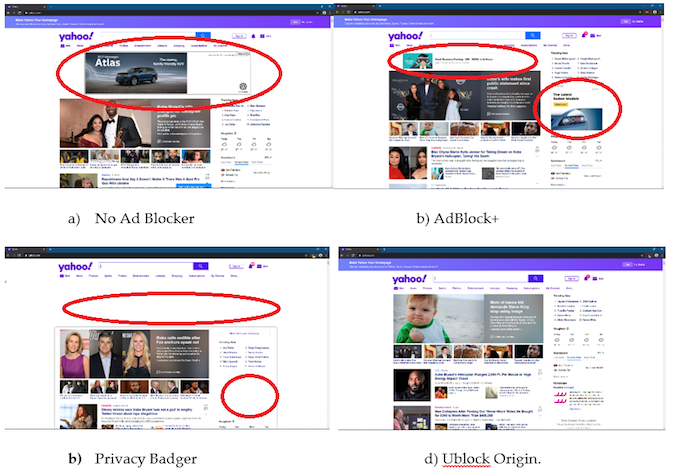A new study meant to investigate energy conservation of free and open source ad blockers has unexpectedly shown that Internet ads are wasting shocking amounts of your time.
More importantly, the results show how you can get that time back. The study estimates that the average Internet user would save over 100 hours a year by using uBlock Origin, a free and open source ad blocker. uBlock Origin was the most effective ad blocker tested, but all ad blockers save time, energy and money according to the study.

The results show that page load time dropped 11% with AdBlock+, 22% with Privacy Badger, and 28% with uBlock Origin. These are not significant on a single page, but Internet users spend more than half of their time online rapidly clicking through websites, spending less than 15 seconds on a given page. With all these clicks, the additional time to load ads really starts to add up.
The article Energy Conservation with Open Source Ad Blockers, published in the journal Technologies, was originally conceived to address rising energy consumption. Internet-related electricity consumption is rising rapidly as global Internet users spend more than 6.5 hours per day online. Americans, for example, have more than doubled the time they spend online since 2000 to almost 24 hours a week. Open source ad blockers have the potential to reduce the time, and thus the electricity, spent by eliminating ads during Internet browsing and video streaming.
In the study, three open source ad blockers were tested against a "no ad blocker" control. Page load times were recorded for browsing a representative selection of the most-accessed websites worldwide, including web searching (Google, Yahoo, Bing), information (Weather.com, Wikipedia), and news sites (CNN, Fox, New York Times). In addition, the study analyzed the time spent watching ads on videos for both trending and non-trending content. This part of the study was more challenging due to the lack of data on the ratio of YouTube watching time spent on trending vs. non-trending content. The time wasted viewing ads per video ranged from 0.06% up to a staggering 21%. Thus, the total hours lost to loading ads was only recorded for browsing.
Overall, the results showed that the energy wasted loading ads is not trivial. As a lot of the electricity used for running computers continues to come from coal, which causes air pollution and premature death, the study analyzed the potential for ad blockers to save American lives. The results were shocking: the energy conserved if everyone in the United States used the open source ad blocker would save over 36 American lives per year.
Electricity costs money, so cutting ads could also save consumers money. In the United States, if all Internet users enabled Privacy Badger on their computers, Americans would save more than $91 million annually. Globally, the results of the investigation were even more striking. uBlock Origin could save global consumers more than $1.8 billion a year.
This study was done before everyone was forced to stay home because of the COVID-19 pandemic, so all the values can be viewed as conservative underestimates. Overall, the study found open source ad blockers are a potentially effective technology for energy conservation.
Although free and open source ad blockers save energy and are good for the environment, you are probably going to use them primarily to block annoying ads and save yourself time.








7 Comments